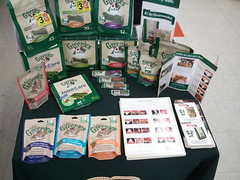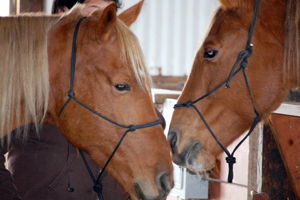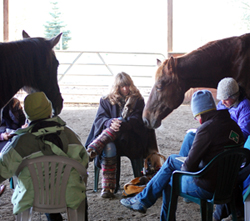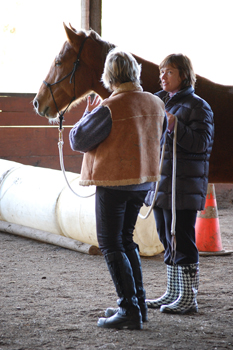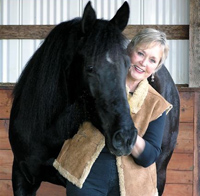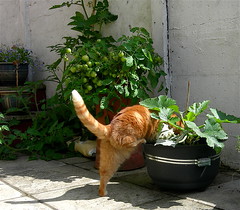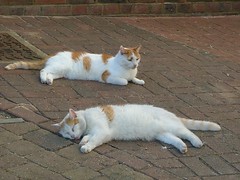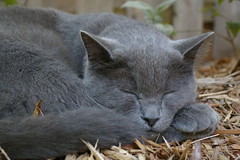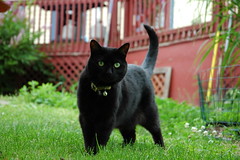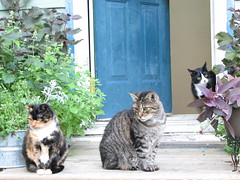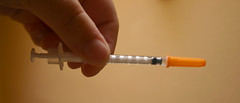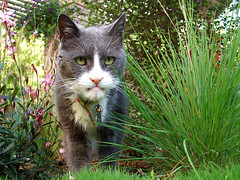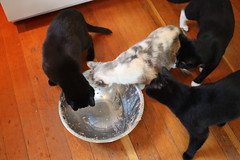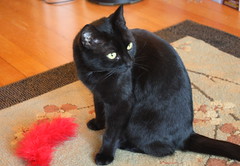 1. That night my mother tucked me into bed and whispered to me, “remember tomorrow we’re going to find a puppy.” I was so excited I couldn’t sleep. I lay there thinking about who my dog would be.
1. That night my mother tucked me into bed and whispered to me, “remember tomorrow we’re going to find a puppy.” I was so excited I couldn’t sleep. I lay there thinking about who my dog would be.
2. Maybe he would be a small white fluffy puppy, so soft and snuggly –
Or a big husky with a wooly thick coat to keep me warm –
Or a pug with a funny face who snorted all the time and made me laugh –
Or a bouncy golden retriever with floppy ears who I could play ball with.
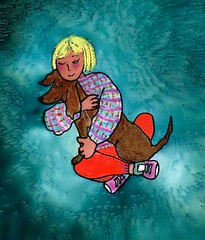 3. Slowly my eyes became heavy and with my head full of dogs I fell into a deep sleep and dreamed.
3. Slowly my eyes became heavy and with my head full of dogs I fell into a deep sleep and dreamed.
4. In my dream I stepped onto an empty beach along a desert. I could see cactuses off in the distance raising their prickly arms in the air and waving at me. I stopped to pick up a handful of white sand. It felt warm. I watched the small bright pebbles run through my fingertips.
5. A little dog trotted towards me. He was thin and wet with a brindle coat of browns and blacks, colors woven together like an Indian blanket. Sand matted against his wet fur sparkling slightly in the sun. One of his ears was torn and bleeding and he looked at me with big sad eyes.
6. I bent down to talk to him. “Do you know which way your home is little dog?” I asked him. He shook his head, spraying me with water and sand.
I reached out and let him sniff my hand. “Do you have someone who loves you?”
 7. He looked at me, cocking his head to the side.
7. He looked at me, cocking his head to the side.
“Is your home with me, are you my dream dog come from the stars? Did you travel through galaxies to be with me?”
We stood inches away from each other, the two of us from different worlds. “Did you come into my dream or am I in yours?” I asked him.
7. I walked down the beach and he continued to follow me. “You are my person.” He told me, “I am Triskele”
“How can I be your person little dream dog Triskele?” I asked him.
“You are my person,” he repeated looking up at me.
8. We danced through the waves together, splashing each other and laughing. We built sandcastles in the damp sand and finally when we were both tired…
9. We sat together and I put my hand on his bony side as we watched the sun go down into the sea and the sky become an explosion of reds, pinks and purples. He curled up next to me and lay his head on my lap as I stroked him gently.
 10. As it became dark I started to miss my bed and home. I looked up and saw a light behind me. It was a door opening along the sand dunes and looking through it I saw my bedroom. I turned to Triskele and said to him, “let’s go home.” I climbed up through the door but when Triskele tried to follow he could not make it through. I put out my hand to help him but the door and Triskele faded away as I reached out for him.
10. As it became dark I started to miss my bed and home. I looked up and saw a light behind me. It was a door opening along the sand dunes and looking through it I saw my bedroom. I turned to Triskele and said to him, “let’s go home.” I climbed up through the door but when Triskele tried to follow he could not make it through. I put out my hand to help him but the door and Triskele faded away as I reached out for him.
“I’m sorry little dream dog Triskele, I thought you could come with me but maybe you’re just part of my dream. Rest little dream dog. I hope that I see you again,” I said sadly.
11. I woke to the sound of rain with my dream dog in my heart. I lay in bed feeling sad and missing him.
The light came on and my mother came in. “Wake up Irene, today’s the day we go to the animal shelter to get a puppy. You don’t want to be late,” she said.
12. I quickly dressed, ate breakfast, and brushed my teeth. We were going to the animal shelter!
13. The rain poured down as we drove, and drove some more. Finally we turned into the driveway of the shelter. The sound of barking dogs met my ears.
14. My mother talked to the woman behind the counter. “No we would really like a puppy so we can train him to be kind and gentle although we might consider an older dog if she had been with a good family before.”
 15. We walked down the aisle through the kennels of dogs. There were small ones and large ones, plump ones and thin ones, one with long hair and long legs, funny looking ones with crooked teeth. But none of them were my dream dog Triskele.
15. We walked down the aisle through the kennels of dogs. There were small ones and large ones, plump ones and thin ones, one with long hair and long legs, funny looking ones with crooked teeth. But none of them were my dream dog Triskele.
16. We stopped in front of a kennel of small puppies. They bounced around like little fuzzy rubber balls, playing with each other. The woman put a small black and white one in my hands and I held him close, smelling his puppy scent. But then I was sad. “You are not my Triskele,” I said to the puppy handing him back to the woman. “Although I’m sure you’ll find a good home.”
17. My mother looked at me. “What about one of these puppies?” she asked pointing to the others.
I shook my head no. “I don’t want a puppy,” I said “ my dog is all alone somewhere. I want to find him.” I could feel tears coming into my eyes.
18. “Triskele did you travel back to the stars?” I thought, “are you visiting the moon. Will you ever come back to me?”
19. We went to leave and were walking out of the kennels when I noticed in the last kennel a little curled up brown and black body in the corner. I bent down and whispered softly, “Triskele?” He raised him head and looked up at me with his gentle eyes, wagging his tail he slowly approached. I reached out my hand to touch him through the gate and he licked me cautiously.
20. The woman opened the gate on the kennel and he leaned into me. I gently scratched his ears, noticing a jagged scar along one of them.
“I don’t know, “ my mother said, “he seems a little scared, I’m not sure about the breed, and he’s not a puppy Irene.”
 21. “He’s my dog,” I told her, “This is Triskele. He’s coming home with us,” and I held him close to me, burying my face into his short fur.
21. “He’s my dog,” I told her, “This is Triskele. He’s coming home with us,” and I held him close to me, burying my face into his short fur.
“I guess if you’re sure, “ she said. The woman who worked at the animal shelter smiled at us. “He’s had a hard life but he’s very sweet and gentle,” she said.
22. “Triskele, this time you really are coming with me.” I told him. Triskele looked up at me as if to say “thank you for helping me find my way home.”
23. That night I feel asleep with my dog Triskele, not only in my heart but also asleep at my side.
This story is dedicated and written in memory of a stray semi-feral dog who I met on a beach in Mexico. It is also dedicated to all the amazing people across the world who work with homeless dogs – the world is a better place because of you.
I hope that some day I can self-publish this and use it to raise awareness of the lives of homeless dogs and that there are many amazing strays and homeless animals of all shapes, types and sizes that need homes. At this point I am learning to be an artist so I can bring it to life with pictures. For now thank you to everyone who licensed their photos through creative commons and allowed me to use them.
 So Ali has been laid up after getting a deep laceration over her wrist. The poor girl had been with bandage and e collar for over a week and boy was she getting tired of it. On Tuesday I finally took her sutures out and she was super excited, bouncing up and down and wanting to go for a walk. Well my husband Adam came home at that exact moment and out the door Ali went…and out the gate, which was not closed all the way.
So Ali has been laid up after getting a deep laceration over her wrist. The poor girl had been with bandage and e collar for over a week and boy was she getting tired of it. On Tuesday I finally took her sutures out and she was super excited, bouncing up and down and wanting to go for a walk. Well my husband Adam came home at that exact moment and out the door Ali went…and out the gate, which was not closed all the way. Ali did not actually make it to the Mud Bay that day, someone was able to stop her for me a few steps away. At least now I know if she bolts out the door again, I can just go and collect her at the Mud Bay counter. Of course we will do our best to avoid it all in the future by being more careful with the gate.
Ali did not actually make it to the Mud Bay that day, someone was able to stop her for me a few steps away. At least now I know if she bolts out the door again, I can just go and collect her at the Mud Bay counter. Of course we will do our best to avoid it all in the future by being more careful with the gate.